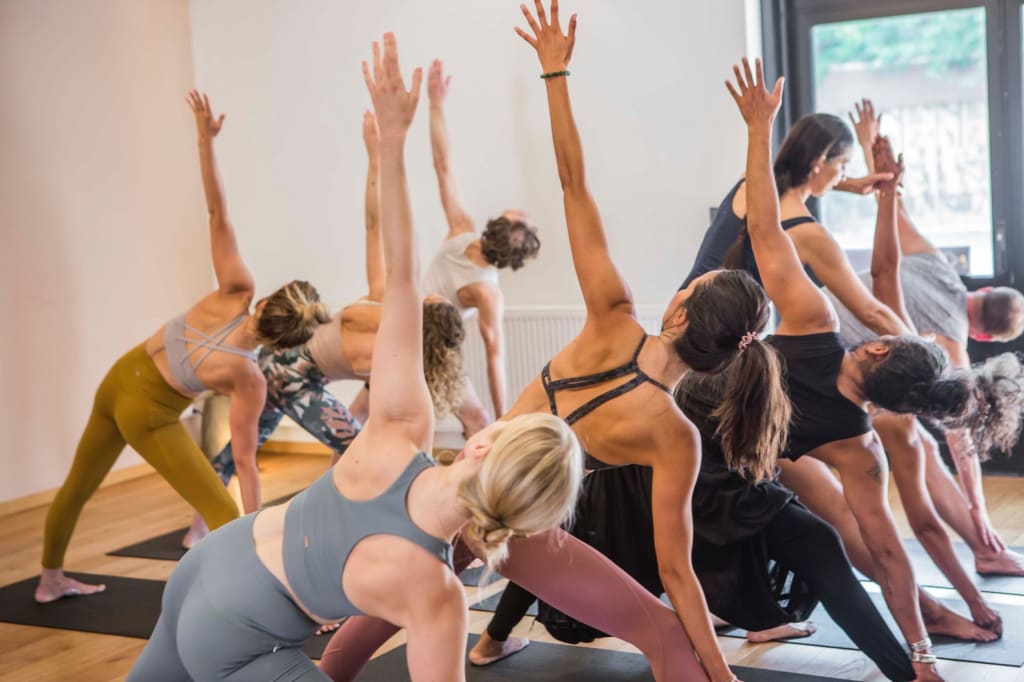8 Benefits of Yoga That You Should Know About
While all of those asanas may appear intimidating at first, they are actually a fairly approachable type of exercise. That is only one of the many advantages of yoga that anybody interested in the practice should be aware of. This is due in part to the fact that so much of yoga is about turning within and focusing on harmonizing your body and mind.

While all of those asanas may appear intimidating at first, they are actually a fairly approachable type of exercise. That is only one of the many advantages of yoga that anybody interested in the practice should be aware of. This is due in part to the fact that so much of yoga is about turning within and focusing on harmonizing your body and mind.
Yoga is beneficial to both physical and mental wellness for people of all ages. And, whether you're dealing with a disease, recuperating from surgery, or living with a chronic condition, yoga may become an important element of your treatment and perhaps accelerate your recovery. In this article, we have gathered eight benefits of yoga that you should know about.
1. Yoga helps reduce stress and build stress resilience
Stress causes us to stiffen up both physically and mentally. When we activate our flight or fight reaction, we experience adrenaline rushes and our bodies release the stress hormone cortisol, which boosts our heart rate and pumps blood to our muscles. Yoga helps us tune in to our rest and digest nervous system reactions. Our bodies begin to recuperate, restore, and mend.
2. Yoga increases the range of motion
Yoga is an excellent method for improving your range of motion if you have difficulty moving particular parts of your body. You might not be able to reach as far as you would want because your shoulders or hips are restricted. Downward-facing dog, for example, requires you to have an average or above-average range of motion in your shoulders, hips, and ankles.
If you can't perform the post right, yoga is a perfect approach to set a range of motion aim. Starting with posture adjustments, you may progress to the proper position as your range of motion expands with each yoga practice.
3. Yoga helps ease lower back pain
If you sit at a desk (or lay on the couch) all day, you may be suffering from low back, shoulder, and neck pain as a result of incorrect posture. Yoga improves posture, which can help avoid low-back, shoulder, and neck problems.
It helps with low-back pain in two ways: Firstly, the yoga meditation practices foster relaxation from the physical discomfort associated with persistent low-back pain). Secondly, physical practice improves core strength and stability, which is vital for posture and is one of the major lines of treatment for low-back pain.
4. Yoga provides you with peace of mind
Yoga calms the mind's fluctuations. In other words, it slows down the mental cycles that create stress, such as frustration, regret, wrath, fear, and want. And, because stress is linked to so many health issues, from migraines and insomnia to lupus, MS, eczema, high blood pressure, and heart attacks, learning to calm your mind can help you live longer and better.
5. Yoga improves cardiovascular function
Pranayama, often known as "yogic breathing," is an essential and useful part of yoga. A review of 1,400 studies on the overall effects of pranayama was published in the Journal of Ayurveda and Integrative Medicine. One important conclusion was that yogic breathing can enhance the functioning of various body systems.
The studies reported in the review indicated that managing the tempo of breathing helped the cardiovascular system significantly, as demonstrated by beneficial changes in heart rate, stroke capacity, arterial pressure, and cardiac contractility. According to this study, yogic breathing can improve the functioning of the brain's cardiorespiratory center.
6. Yoga helps cope with fatigue
When you move, such as by practicing some yoga stretches during the day, your heart pumps more oxygen-rich blood to your muscles and organs. This can aid in the reduction of exhaustion and fatigue. Inversion positions, in which your heart is higher than your head, may be quite beneficial for increasing energy. Forward Fold and Downward Facing Dog are examples of these positions.
7. Yoga helps fight depression and anxiety
One of the key advantages of yoga is its capacity to manage anxiety and depression, which are both on the rise. When it comes to mood improvement, yoga outperforms all other types of exercise. This is due to increased GABA (Gamma-Aminobutyric Acid), low levels of which are connected with anxiety and depression.
According to studies, the advantages of yoga for anxiety and depression increase over time. Your nervous system will be soothed by practicing breathing and breathing with movement. We all appear to be in a state of hyperarousal, thus in order to work well, we must balance the active state with rest and yoga can help you with that.
8. Yoga helps sleep better
When studying sleep, scientists take into account a person's capacity for both falling asleep and staying asleep. Insomnia can have an impact on one or both of these features. Yoga has been demonstrated to increase both the speed with which people fall asleep and the depth with which they sleep. This is due in part to the aftereffects of exercise, as well as the mental relaxation and stress reduction afforded by yoga in particular.
About the Creator
Amelia Grant
I am journalist, and blogger.






Comments
There are no comments for this story
Be the first to respond and start the conversation.